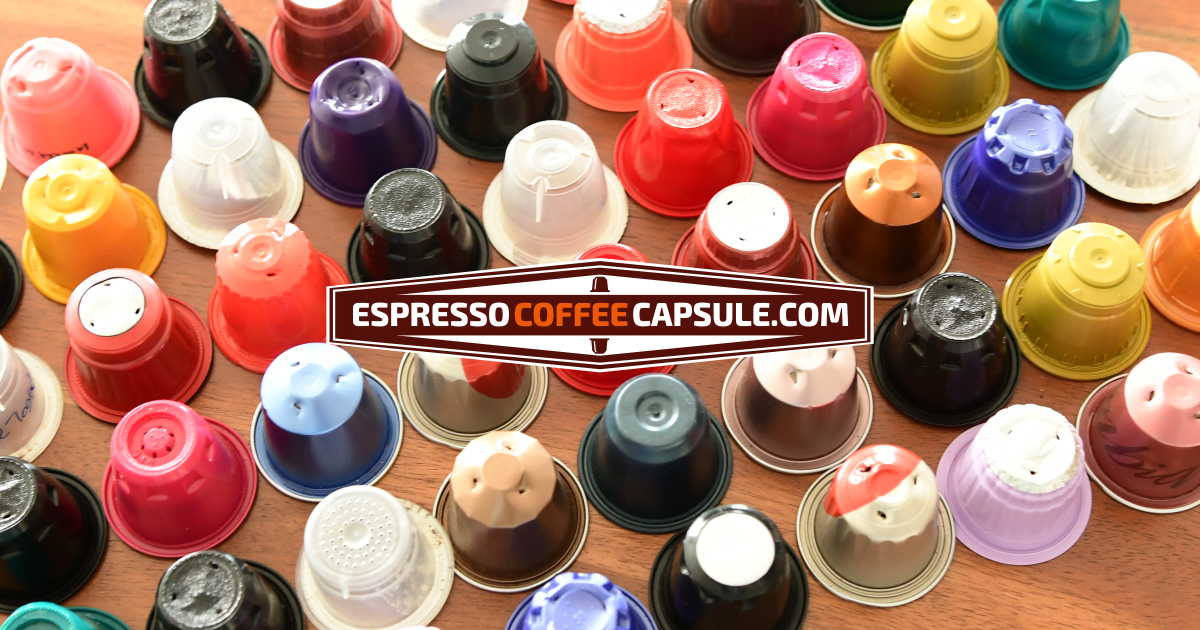
Comparison of coffee pod types for Nespresso® Original Line machines: myths and reality
Discussions of cons and pros for different types of coffee pods take place regularly in social media, forums and various articles. Nowadays there are three main materials which are used for production of coffee pods: aluminium, plastic and plant based compostable mixture. All of them are safe for your health, they are made from heat resistant materials and definitely will not damage your Nespresso® coffee machine (if they are produced precisely according to compatibility guidelines for Nespresso® machines).
Are aluminium capsules the best choice?
Aluminium capsules have lots of advantages. They are very lightweight; safely protect the coffee from oxygen, humidity and light; many time recyclable. As a rule, recyclability is the main argument for usage of aluminium pods. This is like a solid statement that only aluminium can be recycled well. But to be frank, all materials have the same properties.
The problem is that not all consumers are ready to sort their package properly and the capsules are not well collected for recycling. Even in case of aluminium pods, you need first to get out coffee from pod, then to wash the capsule and only after that to throw it to recycle bin / Gelbe Tonne (in Germany). Moreover you need also to remember that recycling systems in countries and regions differ a lot. And some of them are based just on burning out all garbage without any pre-sorting or recycling.
Are plastic pods so unsafe for environment and dangerous for your Nespresso® machine?
No, they are not. Plastic capsules are also widely recycled. Production of plastic pods uses less energy than making aluminium ones, so unless the latter are more widely recycled, then plastic capsules might come out better after all. Good quality plastic capsules do not impact coffee flavors, and they are 100% safe for usage in Nespresso® machines. Probably there are not very good examples of plastic capsules in the market that are produced somewhere by unknown companies. But if you buy coffee in capsules produced by authentic small coffee roasting companies from Italy, the quality of capsules will be very high as well as the quality of drink.
Speaking about thesis that plastic capsules are harmful for environment, you need to know, that traditional espresso has the worst environmental impact.
“The impact, such as greenhouse gas emissions, water and fertiliser use, mostly occurs where the coffee is grown,” says Alf Hill, professor of chemical engineering at the University of Bath. “Capsules tend to need less coffee input to make a single drink and so their overall impact can be lower even though we see more waste when we throw them away.”
Full article https://www.wired.co.uk/article/coffee-pods-nespresso-recycling
Hill’s research backs up other studies conducted during the past few years, which suggest that capsules are environmentally less harmful than alternative coffee-brewing methods. Aside from the environmental impact of growing beans in the first place, the second biggest hit is the energy it takes to brew coffee. That’s why barista-made espresso fares so badly in terms of its environmental footprint: a lot of energy is needed to brew just a tiny single espresso cup. Capsules, on the other hand, are more efficient. The coffee machines only flash-heat the amount of water needed for one portion, unlike, for example, boiling a kettle.
Are compostable capsules a modern trend or a new reality?
Popularity of compostable capsules is more result of marketing campaigns and very often laziness of people. Some consumers are sure that buying compostable pods, they can just throw used capsules in general waste bin without any manipulations. And it is safe for planet, cause they are made from plant based resources.
But actually production of compostable capsules pollutes as much or even more than producing a plastic one. And if you put the capsule into your backyard, existing experiments show that the backyard compost is not good enough to actually degrade it, that it will take years.
Moreover it is very hard to guarantee the quality of coffee inside compostable pods. They do oxidize strong and taste quiet different just in couple months after production. As a result shelf life of such couples is shorter than 12 months and the quality is totally unstable.
